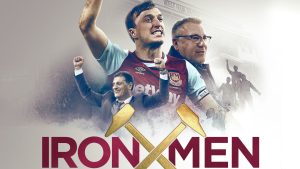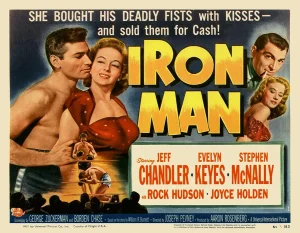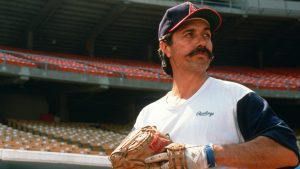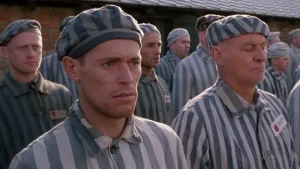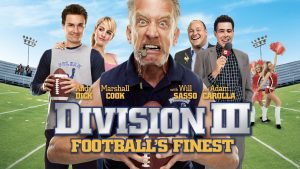
What Is Rollerball (2002) About?
“Rollerball” is a science fiction action film released in 2002, directed by John McTiernan. It is a remake of the 1975 film of the same name. The movie is set in a futuristic world where the most popular sport is Rollerball, a violent and highly dangerous combination of roller derby, basketball, and motocross.
The story follows Jonathan Cross (played by Chris Klein), a talented athlete who becomes a star player in the Rollerball league. However, as he rises to fame, he discovers that the sport is controlled by powerful corporate interests who manipulate the games for profit and entertainment.
As Jonathan becomes increasingly disillusioned with the corrupt nature of Rollerball and the danger it poses to its players, he decides to rebel against the system. Along with his teammates, including Marcus Ridley (played by LL Cool J) and Aurora (played by Rebecca Romijn), Jonathan fights back against the corporate forces that control the sport.
The film explores themes of corporate greed, manipulation, and the corrupting influence of power, while also delivering intense action sequences and adrenaline-fueled rollerball matches.
| Aspect | Description |
|---|---|
| Title | Rollerball |
| Year | 2002 |
| Director | John McTiernan |
| Genre | Science fiction, Action |
| Plot Summary | Set in a futuristic world, Rollerball depicts a violent and dangerous sport of the same name, which combines roller derby, basketball, and motocross. The protagonist, Jonathan Cross, rises to fame as a star player but discovers the sport is manipulated by corporate interests. |
| Main Cast | Chris Klein as Jonathan Cross LL Cool J as Marcus Ridley Rebecca Romijn as Aurora |
| Themes | Corporate greed, Manipulation, Corruption, Rebellion against oppressive systems |
| Setting | Futuristic society where Rollerball is the most popular sport, controlled by powerful corporations |
| Critical Reception | Generally negative reviews from critics, citing poor characterization and excessive reliance on action sequences over coherent storytelling. |
| Box Office | Grossed approximately $25.9 million worldwide against a budget of $70 million, making it a commercial failure. |
| Legacy | Despite its failure at the box office, Rollerball has gained a cult following over the years, particularly among fans of action and science fiction genres. It’s often regarded as a notable entry in the realm of futuristic sports films. |
| Remake of | Remake of the 1975 film of the same name, directed by Norman Jewison. |
What Is the Plot of the Movie?
The plot of “Rollerball (2002)” revolves around Jonathan Cross, a talented athlete who becomes a star player in the dangerous sport of Rollerball. Set in a futuristic society where Rollerball is the most popular sport, the game combines elements of roller derby, basketball, and motocross, and is controlled by powerful corporations.
As Jonathan rises to fame, he discovers that the sport is manipulated by these corporate interests for profit and entertainment. Despite the danger it poses to its players, the corporations increase the violence and risk during the matches to boost ratings.
As Jonathan becomes increasingly disillusioned with the corrupt nature of Rollerball and the exploitation of its players, he decides to rebel against the system. With the help of his teammates, including Marcus Ridley and Aurora, Jonathan fights back against the corporate forces that control the sport.
Throughout the film, Jonathan and his team engage in intense Rollerball matches while also uncovering the extent of the corporate manipulation behind the sport. Their rebellion against the oppressive system forms the central conflict of the movie, culminating in a showdown between the players and the corporate executives who seek to maintain their control.
In summary, the plot of “Rollerball (2002)” explores themes of corporate greed, manipulation, and rebellion against oppressive systems within the context of a futuristic sports setting.
Reasons to Watch It
“Rollerball (2002)” provides a thrilling roller-coaster ride of action-packed sequences set in a visually captivating futuristic world, offering entertainment for fans of adrenaline-fueled sports spectacles. Despite mixed critical reception, its cult following, star-studded cast, and exploration of themes like corporate greed make it worth a watch for those seeking an unconventional cinematic experience.
- Action Sequences:
- The film features intense and adrenaline-fueled action sequences, particularly during the Rollerball matches. These sequences can be entertaining for viewers who enjoy fast-paced sports action and spectacle.
- Futuristic Setting:
- The movie presents a visually striking futuristic world where Rollerball is the dominant sport. Fans of science fiction may appreciate the creative world-building and visual effects that bring this futuristic society to life.
- Cult Following:
- Despite its commercial failure, “Rollerball (2002)” has gained a cult following over the years. Some viewers enjoy the film for its campy charm, over-the-top action, and nostalgic appeal.
- Exploration of Themes:
- The movie touches on themes such as corporate greed, manipulation, and rebellion against oppressive systems. While the execution may be flawed, these themes can still resonate with viewers and spark thought-provoking discussions.
- Remake Curiosity:
- For fans of the original 1975 film or those interested in comparing remakes, “Rollerball (2002)” offers a modern interpretation of the story. Watching both versions can provide insights into how the concept has evolved over time.
- Star Power:
- The film features recognizable actors such as Chris Klein, LL Cool J, and Rebecca Romijn. Fans of these actors may enjoy seeing them in action-packed roles within a futuristic setting.
Overall, while “Rollerball (2002)” may not be universally praised, it still offers entertainment value for viewers interested in its action-packed spectacle, futuristic setting, and exploration of thematic elements.
What Is the Movie Based on?
“Rollerball (2002)” is based on the 1975 film of the same name, directed by Norman Jewison. The original film was a dystopian science fiction sports film that depicted a violent sport called Rollerball set in a future society controlled by corporations. While the 2002 remake shares the same premise and some elements of the plot, it updates the setting and incorporates modern filmmaking techniques.
Is It Critically Panned or Acclaimed?
“Rollerball (2002)” is generally regarded as critically panned. It received predominantly negative reviews from critics upon its release, with criticisms focusing on various aspects including poor characterization, excessive reliance on action sequences over coherent storytelling, and overall execution. Despite its shortcomings, the film has garnered a cult following over the years among fans of action and science fiction genres.
| Aspect | Description |
|---|---|
| Critical Reception | Generally negative reviews from critics |
| Critic Consensus | Critics criticized aspects such as poor characterization, excessive reliance on action sequences, and overall execution |
| Common Criticisms | Lack of coherent storytelling, shallow characterization, excessive focus on action over substance, failure to capture the original’s appeal |
| Cult Following | Despite its critical reception, the film has gained a cult following among fans of action and science fiction genres |
| Rotten Tomatoes | The film holds a low rating on Rotten Tomatoes, indicating predominantly negative reviews from critics |
What Does the Movie Explore?
“Rollerball (2002)” explores themes of corporate control, individualism versus conformity, and the glorification of violence and spectacle in entertainment, all within a futuristic sports setting. Through the protagonist’s journey of rebellion against the oppressive system, the film prompts reflection on identity, purpose, and the struggle for justice in the face of entrenched power structures.
- Corporate Control:
- The film delves into the theme of corporate dominance and control over society, particularly through the manipulation of the Rollerball sport for profit and entertainment. It highlights the dangers of unchecked corporate power and the exploitation of individuals for financial gain.
- Individualism vs. Conformity:
- The protagonist, Jonathan Cross, grapples with the pressure to conform to the corporate-controlled system of Rollerball while also maintaining his individual identity and integrity. The film examines the tension between conformity to societal norms and the desire for personal autonomy.
- Violence and Spectacle:
- Rollerball itself serves as a metaphor for the glorification of violence and spectacle in entertainment. The film raises questions about the ethics of extreme sports and the consequences of prioritizing entertainment value over the well-being of participants.
- Rebellion and Resistance:
- As Jonathan and his teammates become increasingly disillusioned with the corrupt nature of Rollerball, they embark on a journey of rebellion against the oppressive system. The film explores themes of resistance, defiance, and the struggle for justice in the face of entrenched power structures.
- Identity and Purpose:
- Through Jonathan’s character arc, the film explores themes of identity and purpose as he navigates his role as a star athlete within the Rollerball league. His journey involves questioning his motives, values, and ultimately finding a sense of purpose beyond the confines of the sport.
Overall, “Rollerball (2002)” uses its futuristic sports setting to explore complex themes related to power, control, individualism, and rebellion, offering audiences a thought-provoking narrative that goes beyond its action-packed surface.
Memorable Moments in the Movie
Memorable moments in “Rollerball (2002)” include the intense Rollerball matches, characterized by fast-paced action and dynamic camerawork, and pivotal scenes depicting Jonathan’s rebellion against the corrupt corporate system, which offer thematic depth and character development. While the film may not boast universally acclaimed standout moments, its action sequences and themes contribute to its appeal for fans of adrenaline-fueled entertainment.
- Rollerball Matches:
- The intense and adrenaline-fueled Rollerball matches are the centerpiece of the film, featuring fast-paced action, daring stunts, and dynamic camerawork that immerse viewers in the excitement of the sport.
- Jonathan’s Rebellion:
- Moments where the protagonist, Jonathan Cross, rebels against the corrupt corporate system, whether it’s confronting executives or leading his teammates in acts of defiance, are memorable for their thematic significance and character development.
- Action Sequences:
- Various action sequences throughout the film, including chase scenes, fight scenes, and moments of high-stakes danger, provide bursts of excitement and spectacle for audiences.
- Character Interactions:
- Memorable moments may also arise from the interactions between characters, such as Jonathan’s camaraderie with his teammates, conflicts with corporate figures, or moments of personal reflection and growth.
While “Rollerball (2002)” may not be known for iconic or widely celebrated moments, these elements contribute to the overall viewing experience and may stick with audiences in their own way.
Streaming Platforms to Watch the Movie From
“Rollerball (2002)” may be available for streaming on various platforms depending on your region and the current licensing agreements. Some potential streaming platforms where you might find the movie include:
| Streaming Platform | Availability |
|---|---|
| Amazon Prime Video | Possible availability |
| Hulu | Possible availability |
| HBO Max | Possible availability |
| Netflix | Possible availability |
| Disney+ | Availability may vary |
| YouTube Movies | Possible availability |
| Google Play Movies | Possible availability |

